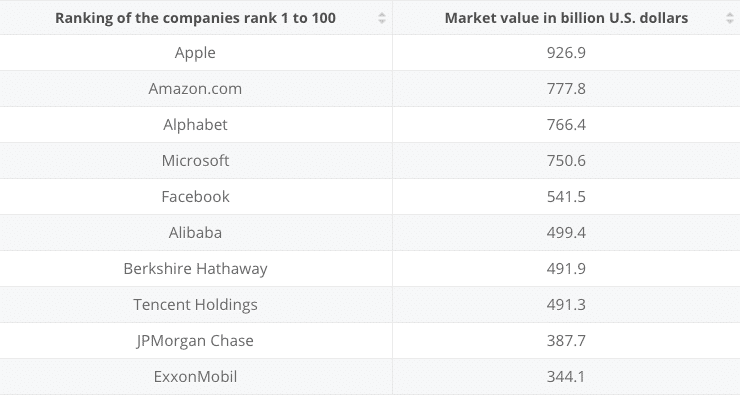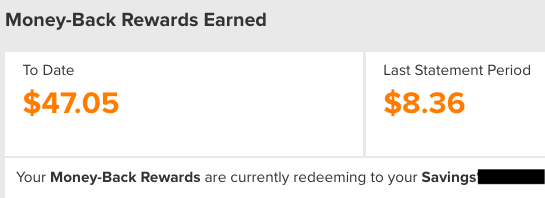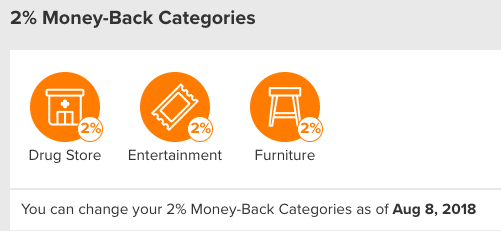Let’s say you had to pick one stock to hold for the next 25 years – which one would it be? Would you select one of the most valuable companies in the world today, such as Apple or Amazon, with the idea that they’ll still be on top a quarter-century from now? Maybe you’d take a shot on the next big thing in artificial intelligence or bio-tech. Or what about that little conglomerate known as Berkshire Hathaway?
Investment bloggers Josh Brown and Michael Batnick got me hooked on this question when they debated over picking one stock for 25 years. Batnick, a die-hard indexer, was caught off guard and tossed out the first name that came to mind – Amazon – before walking back on that idea due to the company’s current insane valuation.
Brown, on the other hand, confidently declared Alphabet to be the stock to own for the next 25 years (with one important caveat). Watch this video to hear Brown and Batnick share some smart takes on this hypothetical debate and why Brown thinks Google is the next Berkshire:
One Stock for 25 Years
The trouble with picking today’s winners is that they come with a heavy dose of recency bias. Take Apple, which has been the largest and most profitable company in the world since 2011. Its massive success has come in a relatively short period of time. In fact, you’d barely recognize the company in 1993. Steve Jobs had yet to return from exile and Apple’s market capitalization was less than $2 billion. Over the next 10 years he launched the iPod and iTunes, followed by the groundbreaking iPhone in 2007. When Jobs resigned, shortly before his death in 2011, Apple had surpassed Exxon as the most valuable company in the world at $350 billion.
Tech stocks have boomed over the last decade and currently hold the top six positions of the most valuable companies in the world.

It’s easy to imagine these companies continuing their success well into the future. But that could prove to be a mistake. All one needs to do is look back 25 to 50 years to see which companies were on top and compare them to where they are today.
Remember Kodak? The largest film company in the world had 90 percent of film sales and 85 percent of camera sales in the U.S. as recently as 1976. Then along came Japanese competitor Fujifilm, then the digital revolution, followed by decades of bleeding market share until it finally filed for bankruptcy protection in 2012.
Here are the world’s biggest companies over the past 25 years:
- Phillip Morris: 1992
- Wal-Mart: 1992-1993
- AT&T: 1993-1994
- General Electric: 1994-1998, 2000-2005
- Microsoft: 1998-2000
- ExxonMobil: 2005-2011
- Apple: 2011-present
General Electric would’ve been considered one of the top stocks to hold for 25 years back in the late 90’s and early 2000’s when it was the largest company in the world. But its value has fallen from $290 billion down to $113 billion and it now ranks as the 64th largest company in the world. GE shareholders have suffered along the way. After reaching a high of $60 in 2000, GE stock has plummeted to $13 today. So much for the widow-and-orphan stock.
Cigarette-maker Phillip Morris, known as Altria today, is now the 85th most valuable company in the world. To be fair, it has continued to be a strong investment and dividend producer for many decades.
Wal-Mart has been slow to grow after occupying top spot in the early 90’s, but the retail giant still holds its own as the 21st largest company in the world. Same with AT&T – not a bad investment but it’s now the 35th most valuable company in the world. Don’t count on double-digit returns with these companies.
Final thoughts (and my stock pick)
Are you confident that Apple will continue its dominance for another two decades or more? I’m not. Heck, Facebook might not even be in the top 10 by the end of the month!
I like Google, but the bulk of its revenue comes from search engine advertising (AdWords). It’s not a stretch to imagine a significant shift in the way we search for information (i.e. more voice command) which could completely change Google’s revenue model before any of its pet projects can pick up the slack.
What’s the future of Berkshire Hathaway without Warren Buffett at the helm? I can see Berkshire turning into a slow and steady grower like Wal-Mart and slipping down the rankings over time.
All that said, I’m going to circle back to Michael Batnick’s throwaway pick and go with Amazon as my stock to own for 25 years. It has incredible market penetration with over 100 million Amazon Prime members world-wide, massive scale, and it seems intent on building for long-term global dominance. What could be next for Amazon? It plans to enter healthcare, and perhaps even mortgage lending.
Picking stocks can be a fun exercise, but it’s extremely difficult to choose tomorrow’s winners today. I have no doubt that bio-tech and artificial intelligence is going to change the world. Some of the companies in those sectors are going to become extremely large and valuable. I just can’t identify them in advance.
That’s why I stick with ETFs and index funds. I can buy the entire market without having to guess which companies will outperform over the next two-and-a-half decades or more.
Leave a comment: Tell me your top stock for 25 years and why you chose it.
Being married to a personal finance blogger can’t be easy. My better half must feel like every spending decision will be scrutinized and every transaction put under the microscope. Adding to her money anxiety is the fact that, as a stay-at-home partner, she doesn’t have her own income to spend on whatever she wants.
Even though we treat our household income as “our money” my wife still has spending needs that shouldn’t require an explanation or justification to her Mr. Multi-Category Budgeting Spreadsheet husband.
Fair enough. To get around this complicated issue my wife has her own credit card – not a joint credit card, but one in her name alone – along with her own chequing account and savings account. She chose Tangerine because, No Fees, obviously.
At the beginning of each month, when we’re moving money around to various accounts to meet our money goals, we also transfer $500 over to my wife’s chequing account, which we call the No Questions Asked spending account.
To the best of my knowledge that money gets spent on health and beauty products, home décor, coconut milk lattes, and Lululemon. She calls it self-care, which sounds good to me. Again, no questions asked.
About a year ago she applied for and started using the Tangerine Money-Back Credit Card. She liked that she could earn 2% Money-Back on some of the categories in which she regularly spends anyway.

The card gives you 2% Money-Back on purchases in two categories of your choice, such as groceries, restaurants, drug stores, and entertainment. When she told me she deposited her Money-Back Rewards into her Tangerine Savings Account to earn a third 2% Money-Back category, it was like we fell in love all over again.
My wife knows she won’t get rich earning rewards on $500 per month in spending. At most she’ll get $5 or $10 automatically deposited back into her savings account each month. It can add up, though. She’s already saved an extra $50 just through regular spending.

She’s smart with her spending, too; stocking up on beauty products when they’re on sale, personalizing her 2% Money-Back categories to the match her shopping habits, and even adjusting her preferences to a new category whenever a large purchase comes up so she can save 2% on it.
Money-Back categories include:
- Grocery (most popular)
- Restaurants
- Gas
- Recurring Bill Payments
- Drug Store
- Entertainment
- Furniture
- Hotel-Motel
- Home Improvement
- Public Transport and Parking

My wife uses the Tangerine trifecta – a no-fee daily chequing account paired with a high interest savings account, and Money-Back credit card – to spend and save her money in her own way.
By using this approach we have less overall money anxiety around our household budget, my wife establishes her own credit rating and builds a higher credit score, and she earns money-back on her everyday spending.
Time for a Giveaway! <— Win $250 from Tangerine!
What challenges have you faced with your household budget and everyday spending? Did you find a solution? Share them with me for the chance to win $250* courtesy of Tangerine!
There’s two ways to enter the contest:
Option #1
Leave a comment below sharing your own budgeting successes and/or difficulties, as well as your favourite Money-Back Credit Card category
Option #2
Retweet this tweet with a comment about your favourite Money-Back category and use the hashtag #TangerineMoneyBack. Be sure to follow me on Twitter.
Contest Rules:
Open to Canadian residents only. One entry per person. The winner will receive a $250 gift card to a retailer in their favourite spending category. Don’t have the Tangerine Money-Back card yet? You can sign up here.
Contest closes on July 27, 2018 at 8:00 p.m. EST and I will announce the winner on Twitter, plus here on the next edition of weekend reading, on July 28, 2018.
Good luck to all!
Banks are staying open longer to meet the needs of their busy customers, offering extended weekday hours and opening on weekends. You’d like to think they’d be able to deliver the same level of service during those off-peak hours, but my experience suggested otherwise.
My daughter and I walked into a TD branch Saturday afternoon looking to open a children’s savings account. We happened to be in the neighbourhood and had some time to kill. Well, that time was quickly wasted during this brief exchange with the teller:
- Me: Hi there, I’d like to open a savings account for my daughter.
- Teller: Yes we can help you. You’ll have to make an appointment with one of our advisors.
- Me: I can’t just open the account now?
- Teller: Sorry ¯\_(ツ)_/¯
Later I shared my frustration on Twitter, where many of my followers echoed similar experiences with not just TD but all the big banks in Canada:
Went to a @TD_Canada branch today. No customers there at all. Asked to open a savings account for my daughter and was told they couldn’t do it – I had to make an appointment and come back another day. What is even the point of a full service branch?
— Boomer and Echo (@BoomerandEcho) July 21, 2018
It’s extremely disappointing that in 2018 I can’t open a simple savings account online, let alone when I walk into an empty branch on a Saturday afternoon. My nine-year-old doesn’t need to see an advisor – there’s no hope of upselling her a loan. C’mon, guys. Get your act together.

Why though?!?
This Week’s Recap:
This week I brought attention to some of the most lucrative bank account promotions on the market today and, after checking under the hood, I explained why they’re not such a great deal for consumers looking to score a deal.
My Smart Money column at the Toronto Star looked at three ways to save on foreign currency conversion fees when you travel or shop online.
Many thanks to CBC’s Sophia Harris for interviewing me for her latest piece on Aeroplan. This week the loyalty program offered a glimpse into what their new program might look like beyond June 2020 when its long-time partnership with Air Canada ends. My thoughts: The new program sounds promising but many unanswered questions remain about the value of miles going forward.
Promo of the Week:
I used to pay to get my credit score from Equifax every few years to keep tabs on my score and look over my credit report. It cost around $25 a pop. Today you can get your credit score for free from online lenders such as Borrowell.
Checking your credit score with Borrowell is considered a ‘soft inquiry’ so it won’t affect your score. I make sure to check my credit score every few months, mainly because I tend to apply for a lot of credit cards and want to see how that affects my score (the answer is each credit card application lowers my score by about 10 points). I also look over my credit report to check for any inaccuracies.
My credit score usually hovers between 720 and 775. That’s not considered an ‘excellent’ score, but I’ve never had any issues obtaining credit or getting the best rate on my mortgage or other loans.
Weekend Reading:
Here’s the credit card churning secret: How to travel the world for free without ever damaging your credit score.
The federal Liberals announced that starting this month the Canada Child Benefit will be indexed to keep pace with the cost of living.
Also read: How families can get more from Canada’s Child Benefit.
This money diary post on the Refinery blog got the internet a-buzzing. It’s written by a young marketing intern in New York whose parents pay her $2,100/month rent and dole out another $1,100/month for living expenses.
A millennial reader asks PWL Capital’s Ben Felix whether she should go with Wealthsimple when she starts to invest.
Speaking of Wealthsimple, in his latest edition of Common Sense Investing Ben Felix tackles the topic of robo-advisors:
A Wealth of Common Sense blogger Ben Carlson wonders if expensive SUVs are ruining retirement savings?
Inflows into passive investments have slowed. Barry Ritholtz explains why index funds are going to be just fine.
Here’s Nick Maggiulli on rethinking how to view your time – the most important asset.
Equally as brilliant, Morgan Housel on optimism vs. complacency vs. pessimism:
Those are the three types of risk mindsets in the world:
- Those who know stuff breaks and attempt to survive the breaks long enough to experience the eventual growth that occurs when people learn and improve from the breaks.
- Those who think stuff doesn’t break and are broken when it does.
- Those whose experience being broken leads them to believe there’s no such thing as eventual growth.
Optimist, complacentist, pessimist.
Warren Buffett has donated roughly $3.4 billion of Berkshire Hathaway stock to five charities, most of which is going to the Bill & Melinda Gates Foundation.
A lesser known billionaire – former energy trader John Arnold – has also signed the Giving Pledge and promised to donate the bulk of his wealth to charity.
He retired at 52 with a $3 million net worth — here’s what a week of his spending looks like.
It’s easy to fail at personal finance. Here’s what smart rich people do with their nest egg.
A wife fears her husband’s retirement will destroy their happiness:
“I am afraid I will quickly become resentful of having to go to the office every day while he enjoys a never-ending vacation. I know I should not think this way, and I am sure a lot of women married to older husbands somehow find ways to accept this kind of arrangement, but what if I can’t?”
Finally, Global’s Erica Alini takes an in-depth look at reverse mortgages and asks if this is the solution if you retire cash-poor?
Have a great weekend, everyone!

